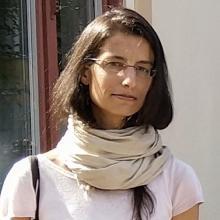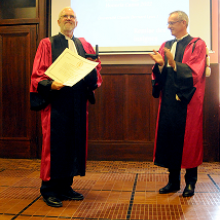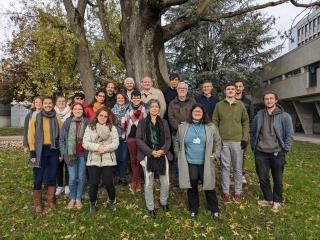Bioinformatics, Phylogeny and Evolutionary Genomics Group
Members
Maîtresse de conférences
UCBL
Tel: 04 72 44 84 87

Professeure des universités
UCBL
Tel: 33 04 26 23 44 76
Doctorante
UCBL
Enseignant-chercheur CPJ
UCBL

Directeur de recherche
CNRS
Tel: 33 04 72 44 62 97
Doctorant
CNRS

Professeur d'université émérite
UCBL
Tel: 04 72 44 85 60
Ingénieur d'études CDD
CNRS

Directeur de recherche
CNRS
Tel: 33 04 72 43 11 67

Maîtresse de conférences
UCBL
Tel: 33 04 72 43 29 18
Doctorante
UCBL

Chargée de recherche
CNRS
Tel: 33 04 72 44 85 60

Directeur de recherche
CNRS
Tel: 04 72 44 84 87

Chargée de recherche
CNRS
Tel: 04 72 43 13 44

Directeur de recherche
CNRS

Maître de conférences
UCBL
Tel: 04 72 43 35 83

Chargée de recherche
CNRS
Tel: 04 72 44 81 42
Doctorant
CNRS

Directeur de recherche
CNRS
Tel: 33 04 72 44 62 96

Chargée de recherche
CNRS
Tel: 04 72 43 26 28
Doctorant
UCBL

Chercheur invité
UCBL
Our group focuses on two main axes: phylogenomics (i.e. the inference of evolutionary history based on genomics data) and evolutionary genomics (understanding the molecular and population processes that drive genome evolution). We see genomes both as a subject of research (how do genomes evolve, why are they structured the way they are?), but also as a main source of empirical knowledge about the macroevolutionary patterns (what do they tell us about the history of life on Earth?), or about the phenotypes and life-history strategies of organisms. Our works heavily rely on methodological developments (bioinformatics, modeling and statistical inference).
Evolution of genome architecture and expression
Genomes are the result of a long-term evolutionary process, shaped by multiple evolutionary forces. Some genomic features are adaptive (i.e. are beneficial for the fitness of organisms), others result from non-adaptive processes (random drift and biased gene conversion - BGC) or are caused by conflicts between multiple levels of selection (e.g. meiotic drive or the spread of selfish genetic elements). We explore different aspects of genome architecture (base composition landscapes, genome structure and size, impact of transposable elements, …) or functioning (gene expression, lncRNAs, epigenetic landscapes, …), and try to disentangle the relative contribution of adaptive and non-adaptive processes to their evolution. For this purpose, we consider both the molecular mechanisms (mutation, repair, recombination) and the population processes (selection, drift, BGC, …) that shape genetic variation.
Phylogenomics
We are interested in reconstructing the history of life on Earth. This research unfolds along several axes. First, we develop phylogenomic databases of aligned genetic sequences (e.g. BIBI, RiboDB or HOGENOM). Second, we conduct methodological research on how to accurately reconstruct deep phylogenies, infer divergence times, reconstruct ancestral genetic sequences, gene repertoires and life-history traits. This methodological work is translated into publicly available software programs (e.g. SeaView, PhyloBayes, Coevol). Finally, we apply these approaches to several important problems, among which: reconstructing the phylogeny of animals, of archaea, or the global tree of life; using phylogenies and ancestral gene repertoires to investigate the evolution of complex systems and the emergence of molecular and cellular functions in the three domains of life; reconstructing ancestral genetic sequences, a research activity that has industrial and biotechnological applications.
Teaching and outreach
We teach at University Lyon 1 (Master Bioinfo@Lyon), INSA, ENS Lyon, we organize bioinformatics internships. We regularly give conferences on evolution (tree of life, human evolution, genetic diversity, …).
Prospective students and postdocs are invited to apply, as we often welcome visitors for internships or research projects.
Keywords: Molecular evolution and Population Genomics; Phylogenomics; Computational Genomics; Comparative genomics; Bioinformatics; Statistical inference.
Publications
Display of 1 to 30 publications on 1109 in total
Epigenetic Clock Analysis of Sex Chromosome Aneuploidies
Aging Cell .
DOI: 10.1111/acel.70243
Journal article
see the publicationPlant sex-determining genes and the genetics of the evolution towards dioecy
Journal of Experimental Botany . 76 ( 14 ) : 3896-3911
DOI: 10.1093/jxb/eraf224
Journal article
see the publicationOrigin and evolution of Inhibitors of apoptosis (IAPs) in early metazoans
EVOLYON 2025 .
Poster
see the publicationSpecific expansion and diversification of Inhibitors of APoptosis (IAPs) support symbiont maintenance and morph-specific regulation in aphids
XII International Symposium on Aphids (ISA) .
Conference paper
see the publicationThe Spread of Antibiotic Resistance Is Driven by Plasmids Among the Fastest Evolving and of Broadest Host Range
Molecular Biology and Evolution . 42 ( 3 ) : msaf060
Journal article
see the publicationComment les espèces s’adaptent génétiquement à leur environnement ? Sélection positive, balancée, et microbiote intestinal
The porphyran degradation system is complete, phylogenetically and geographically diverse across the gut microbiota of East Asian populations
PLoS ONE . 20 : e0329457
Journal article
see the publicationMulti-proteins similarity-based sampling to select representative genomes from large databases
BMC Bioinformatics . 26 ( 1 ) : 121
Journal article
see the publicationAn XY chromosome system in Laurus azorica, an endemic dioecious laurel from the Azores
Journal of Evolutionary Biology . 38 ( 7 ) : 1008-1015
DOI: 10.1093/jeb/voaf032
Journal article
see the publicationRelaxed Purifying Selection is Associated with an Accumulation of Transposable Elements in Flies
Molecular Biology and Evolution . 42 ( 6 )
Journal article
see the publicationHuman population history on the North Coast of peru from Y chromosomes and mitogenomes
Scientific Reports . 15 : 27362
Journal article
see the publicationTransposable element expression is associated with sex chromosome number in humans
PLoS Genetics . 21 ( 6 ) : e1011668
Journal article
see the publication14C dating of tsunami deposits in arid environments: How challenging can it be? The example of La Graciosa, Canary Islands
Marine Geology . 488 : 107607
Journal article
see the publicationOrigin and evolution of Inhibitors of apoptosis (IAP) in early metazoans
Jacque Monod conference, Molecular basis for membrane remodelling and organisation .
Poster
see the publicationCushion plants in the Alps are swarming with invertebrate life
Alpine Botany .
Journal article
see the publicationAn ancient regulatory variant of ACSF3 influences the coevolution of increased human height and basal metabolic rate via metabolic homeostasis
Cell Genomics . 5 : 100855
Journal article
see the publicationParticular sequence characteristics induce bias in the detection of polymorphic transposable element insertions
Peer Community Journal . 5 : e63
Journal article
see the publicationPrehistoric genomes from Yunnan reveal ancestry related to Tibetans and Austroasiatic speakers
Science . 388
Journal article
see the publicationMaternal genetic origin of Chao Lay coastal maritime populations from Thailand
BMC Biology . 23
Journal article
see the publicationNeanderthal adaptive introgression shaped LCT enhancer region diversity without linking to lactase persistence in East Asian populations
Proceedings of the National Academy of Sciences of the United States of America . 122 ( 11 ) : e2404393122
Journal article
see the publicationFaithful Interpretation of Protein Structures through Weighted Persistent Homology Improves Evolutionary Distance Estimation
Molecular Biology and Evolution . 42 ( 2 )
Journal article
see the publicationExploring endogenous retroviruses in ruminant genomes: They might not be all dead after all
Bioinformatics and Evolutionary Genomics (ALPHY = ALignments and PHYlogeny) .
Poster
see the publicationA genome-wide study of ruminants uncovers two endogenous retrovirus families recently active in goats
Mobile DNA . 16 ( 1 ) : 4
Journal article
see the publicationExploring the role of transposable elements to sex gap in longevity in Drosophila species
Preprint
see the publicationAllostery and Evolution: A Molecular Journey Through the Structural and Dynamical Landscape of an Enzyme Super Family
Molecular Biology and Evolution . 42 ( 1 )
Journal article
see the publicationPRDM9 drives the location and rapid evolution of recombination hotspots in salmonids fish
PLoS Biology . 23 ( 1 ) : e3002950
Journal article
see the publicationVariation in the fitness impact of translationally optimal codons among animals
Genome Research . 35 ( 3 ) : 446-458
Journal article
see the publicationThe Silene latifolia genome and its giant Y chromosome
Science . 387 ( 6734 ) : 630-636
Journal article
see the publicationEvidence that genetic drift not adaptation drives fast‐Z and large‐Z effects in Ficedula flycatchers
Molecular Ecology . 34 ( 18 ) : e17262
DOI: 10.1111/mec.17262
Journal article
see the publicationOut-of-Africa migration and clonal expansion of a recombinant Epstein-Barr virus drives frequent nasopharyngeal carcinoma in southern China
National Science Review . 12
DOI: 10.1093/nsr/nwae438
Journal article
see the publication
